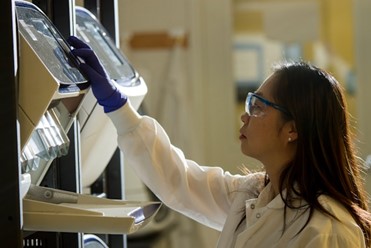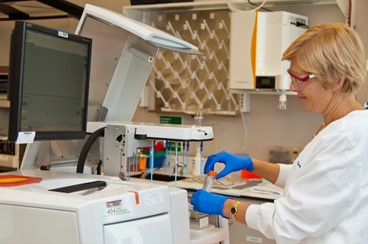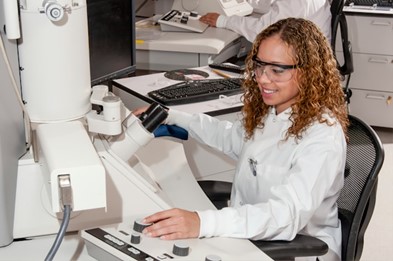
As artificial intelligence (AI) and machine learning (ML) rapidly advance, the biotech industry is undergoing a transformative shift that’s creating exciting new job opportunities. AI is enhancing drug discovery, diagnostics, and personalized medicine, among other areas, and in turn, is driving demand for specialized skills and expertise. From data scientists and computational biologists to AI ethicists and automation engineers, a range of new roles is emerging within the field that promises to reshape the industry. Biotech recruiters are increasingly seeking professionals at the intersection of technology and biology, offering rewarding career paths for those looking to make a significant impact in this evolving field.
The integration of AI and ML into biotech has transformed how scientists approach drug discovery, patient diagnostics, and disease prevention. Traditionally, these processes were labor-intensive and required significant resources, with new drug development typically taking up to a decade and costing billions of dollars. Now, with AI-driven algorithms, machine learning models, and massive datasets, companies can analyze genetic, clinical, and molecular data to identify potential drug candidates, predict patient outcomes, and make data-driven decisions much faster and more accurately.
AI is proving particularly beneficial in early-stage drug discovery by assisting in tasks like:
Predicting Molecular Interactions: AI models can analyze how molecules interact, helping researchers pinpoint effective drug compounds before entering clinical trials.
Personalized Medicine: Machine learning models analyze patient data to identify which treatments will be most effective for individual patients, paving the way for personalized healthcare.
Predictive Analytics: By analyzing vast datasets, AI can predict disease outbreaks and trends, aiding in the development of preventative measures and treatment protocols.
As AI applications in biotech expand, recruiting firms are seeing a growing demand for new job roles and specialized expertise. As AI applications in biotech expand, recruiting firms are seeing a growing demand for new job roles and specialized expertise, and today even AI recruiter platforms play a role in matching niche talent to emerging biotech positions. Here are some of the most prominent roles emerging in biotech as a result of AI and machine learning:
AI and machine learning scientists are at the core of developing and implementing algorithms and models for biotech applications. Their work includes designing machine learning models that can analyze biological data, interpret gene sequences, or simulate molecular interactions. These scientists work with biologists, chemists, and data scientists to understand the biological problems at hand and then build models that can process vast amounts of complex data to offer solutions.
Computational biologists, often recruited by biotech staffing agencies, use data-driven approaches to answer biological questions, frequently working with large datasets such as genomic or proteomic information. In the context of AI, computational biologists develop algorithms to understand gene interactions, protein folding, and cellular behavior, all of which are crucial for understanding diseases and developing treatments. Their work directly applies to drug discovery, where they leverage AI to analyze and predict how drugs will interact with biological systems.

Data scientists with a specialization in biotech are responsible for analyzing and interpreting complex biological data generated by AI models. These professionals work closely with AI scientists to ensure that data pipelines are efficient and accurate. They clean, process, and analyze data to identify trends, correlations, and patterns that may provide insights into drug efficacy or patient outcomes. Data scientists also develop data visualizations that help stakeholders interpret AI-driven findings in drug discovery, genomics, and patient diagnostics.
Bioinformatics engineers bridge the gap between biology and computer science, creating and maintaining software tools that enable data processing, storage, and analysis in biotech labs. They develop algorithms and software that allow researchers to interpret genetic data, identify biomarkers, and evaluate treatment responses. In AI-driven environments, bioinformatics engineers may focus on creating pipelines that enable machine learning models to process large biological datasets, such as gene sequences or clinical trial data, more efficiently.
As biotech companies adopt AI, there is a need to ensure ethical and regulatory compliance, particularly with patient data and clinical trials. AI ethicists and compliance specialists address concerns related to data privacy, transparency, and potential biases in AI-driven healthcare solutions. They work with AI and machine learning teams to implement ethical frameworks, ensuring that AI models adhere to regulations such as HIPAA (Health Insurance Portability and Accountability Act) and GDPR (General Data Protection Regulation).

The use of AI in biotech is creating specific applications that are driving these new roles. Here are some of the most transformative applications where AI and machine learning are having a profound impact:
AI algorithms can now screen thousands of potential drug compounds in a fraction of the time traditional methods require. Machine learning models predict which compounds are likely to succeed, accelerating the process of drug discovery and lowering costs. In addition to AI scientists, computational biologists and data scientists play vital roles in developing these models, processing data, and interpreting results for pharmaceutical applications.
With the rise of personalized medicine, AI plays a critical role in analyzing patient-specific data to develop tailored treatments. Machine learning models assess genetic and environmental factors to recommend personalized treatments for conditions such as cancer, diabetes, and cardiovascular diseases. Data scientists and bioinformatics engineers, often sought by pharmaceutical recruiters, are essential in managing and interpreting the vast amounts of data needed for precision medicine.
AI’s ability to analyze images and patient data for disease prediction has made it invaluable in diagnostics. Machine learning algorithms can interpret medical images, detect anomalies, and predict the likelihood of diseases such as cancer, heart disease, and neurological disorders. This has created new job roles for AI-trained radiologists, medical data scientists, and diagnostic model developers, who are instrumental in training and maintaining these predictive models.
AI and robotics are also streamlining laboratory processes, such as DNA sequencing, sample analysis, and experiment tracking. Automation engineers specializing in biotech work with AI to create robotic systems and automated workflows that increase productivity and reduce errors. These roles are especially valuable in high-throughput labs where efficiency and accuracy are paramount.
As AI becomes more integrated into biotech, it’s likely that new hybrid roles will continue to emerge. Roles such as “genomic data analyst” or “healthcare AI integration specialist” may become more common, as professionals with cross-disciplinary skills in biology, computer science, and data ethics are needed. Additionally, AI-related skills are becoming essential even in traditional biotech roles, as professionals across the industry must be adept at using AI-driven tools and understanding their implications.
The rise of AI and machine learning in biotech is reshaping career landscapes and creating a wide range of opportunities. From AI scientists developing predictive models to bioinformatics engineers bridging biology and technology, the demand for skilled professionals in biotech has never been greater. As AI continues to advance, the biotech industry will need more specialists who can navigate the complexities of technology and biology to drive innovation and deliver breakthrough medical solutions. For those interested in biotech, now is the perfect time to build AI skills and become part of this transformative era in healthcare and life sciences.